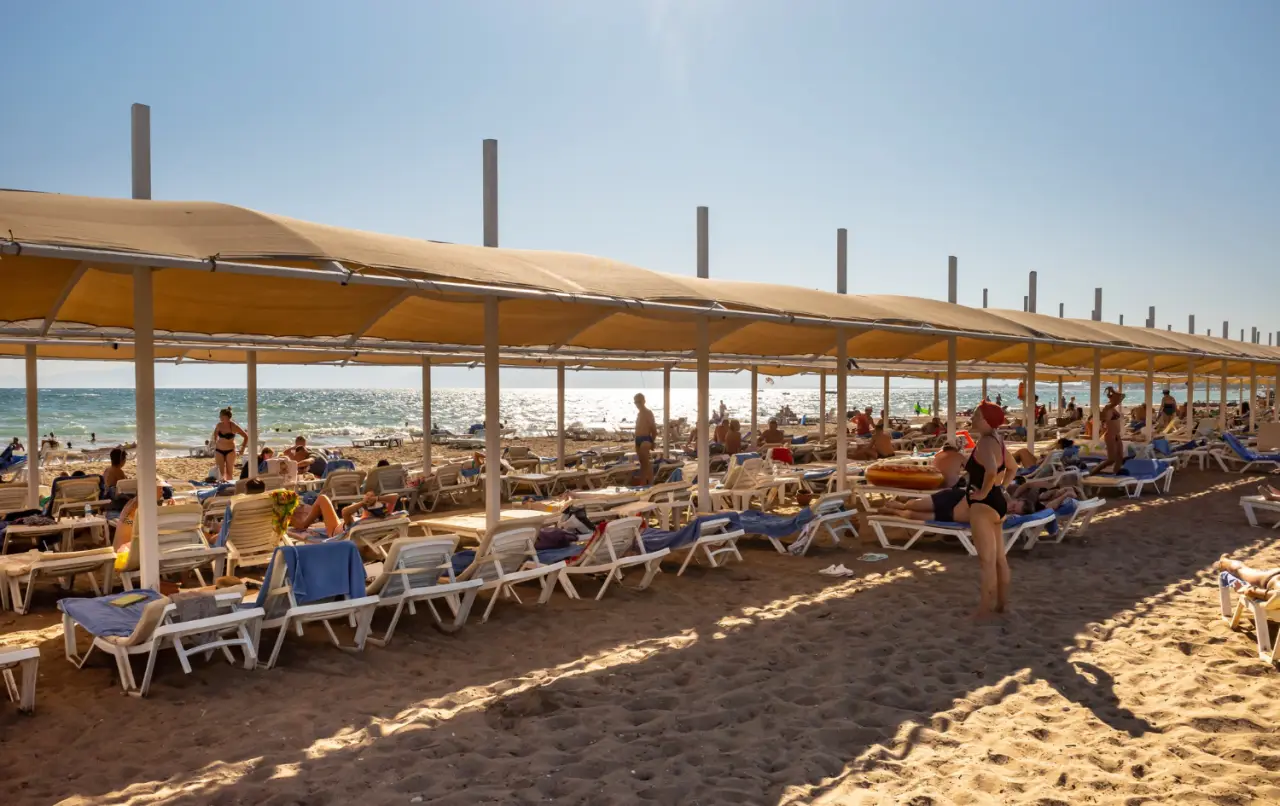FTI Touristik, a major German tour operator, declared insolvency on June 3, raising concerns within Turkey’s tourism sector. The impact of this collapse is being assessed, particularly in terms of its effects on Turkey’s tourist inflow.
Kaan Kavaloğlu, President of the Mediterranean Touristic Hoteliers and Operators Association (AKTOB), emphasized the need to ensure that tourists affected by FTI’s bankruptcy continue to choose Turkey. “We have started high-level discussions with several tour operators to address this issue,” he said.
While the summer season is underway, hoteliers are more concerned about the potential impact on winter tourism. FTI’s capacity for winter tourism is significant, with 1.5 million potential visitors. To mitigate this loss, discussions are ongoing with other German tour operators.
The Ministry of Tourism and industry stakeholders are working to prevent the deflection of approximately 400,000 summer reservations made through FTI to other destinations. Simultaneously, efforts are being made to fill the gap left by FTI for the winter season.
Erkan Yağcı, President of the Turkish Hoteliers Federation (TÜROFED), highlighted the importance of maintaining the winter tourism capacity that FTI used to bring to Turkey. “It is crucial to fill the void left by FTI. Other operators need to step up, particularly with flight capacities and their own airlines,” he noted.
Bodrum Hoteliers Association (BODER) President Ömer Faruk Dengiz, who stated that 90-95 thousand tourists were expected to come to Bodrum from Germany this year but that this number has decreased following the FTI insolvency, said, “Despite everything, there are those who want to come and we continue to offer alternatives. We think that there is a loss of over 10 million Euros.”
Dengiz added, “Bodrum has a very wide range of destinations. You can come to Bodrum from nearly 50 countries with a 3-hour flight. We think that we will close this gap from Central Europe, Saudi Arabia and England. We think that there will not be a very big gap.”
The exact financial damage caused by FTI’s bankruptcy is still unclear. For comparison, the collapse of Thomas Cook, Europe’s second-largest tour operator, left a debt of 350 million euros to Turkish tourism. FTI’s total debt is estimated at 200 million euros, with specific amounts owed to hotels in Greece and Spain.
In Greece, 7,500 tourists were affected while in Spain, the impact is expected to be around 5% of the anticipated revenue. This indicates that while the situation is serious, it may not be as devastating as the Thomas Cook collapse.
Turkey’s tourism authorities and industry leaders are working diligently to address the fallout from FTI’s insolvency. Their efforts aim to ensure the continuity of tourist inflow and to protect the country’s tourism sector from significant losses.
Regarding the issue, Minister of Culture and Tourism Mehmet Nuri Ersoy said, “We have established a crisis desk in our ministry. First of all, the return of more than 25 thousand FTI guests who were on holiday in our country was organized without any victimization and to a large extent without any problems.”
“We have completed our meetings with the administrators of leading tour operators in Germany, including the trustee board assigned to the company and operators of Turkish origin who are interested in these reservations. We, as the ministry and TGA, have also launched an intensive and long-term promotional campaign in addition to our current campaigns throughout Germany. As a result of all these developments, according to the information we have received, a very large proportion of FTI guests’ future reservations in Turkey are also made in Turkey. Thirdly, company officials verbally state that their receivables from businesses in Turkey are much higher than their debts to businesses. The agreement process on this issue is ongoing.
As a result, we foresee that we will close the process with very little loss in Turkey due to the fact that the travel processes of guests caught in the crisis on holiday were carried out smoothly compared to other countries, and the positive impact of the new campaign we started with tour operators.” added Turkish Culture and Tourism Minister.
Mehmet İşler, President of the Aegean Tourism Enterprises and Accommodations Association (ETİK) and Vice President of the Turkish Hoteliers Federation (TÜROFED), stated, “Turkish tourism has witnessed similar bankruptcies before. One of the companies that went bankrupt was First Choice. Recently, the bankruptcy of Thomas Cook significantly harmed our sector. Now, FTI is in the spotlight for the same reason. FTI has approximately 25-30 million euros in debt in the Turkish market. With the bankruptcy filing, a crisis desk was established under the coordination of the Ministry of Culture and Tourism.
A special operation was launched to ensure that tourists coming to Turkey do not face any problems. The primary goal was for the guests visiting Turkey to have their holidays without issues and to return to their countries without any inconvenience. What the insurance process will cover is not yet clear. However, the process is being managed without panic.
We are trying to overcome the crisis with minimal losses, without reducing reservations or causing damage. I can say that this crisis management was conducted professionally and successfully without any loss in numbers or reputation.
The sector did not suffer and did not deviate from its targets. As someone from within the sector, the Minister took preventive measures without us even requesting them. He became a guide leading the sector. We all witnessed how quickly a minister from within the sector could take measures against instant developments, preventing a major crisis that could have caused significant damage to our country’s reputation, fame, and image and created serious issues regarding our goals.”
“This situation has created additional confidence among us as tourism professionals. We do not want such incidents to occur, but now, there is Turkish Tourism that is resilient against crises and can immediately show its stance with this resilience. At the head of Turkish tourism is someone from the sector. This confidence provides a driving force for tourism professionals to work harder and set bigger goals. We thank everyone involved, especially the Minister, who, with their foresight and close monitoring of the situation, prevented the FTI crisis from hitting the sector,” he said.













